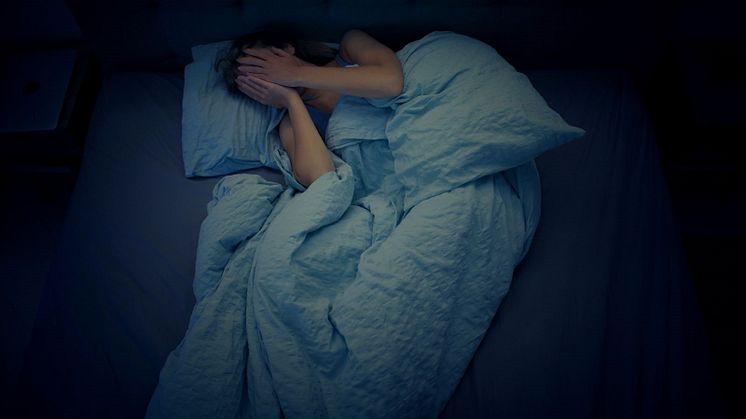
Press release -
Self-help techniques can be successful in curing acute insomnia, study reveals
Most of us will know the frustration of being unable to fall asleep at night – but for those who experience sleep issues for weeks or even months at a time, the impact on their physical and mental health can be severe.
The Covid-19 pandemic led to a significant rise in the number of people suffering from sleep disorders, particularly acute insomnia – defined as when someone struggles to fall asleep for at least three nights each week for a period of between two weeks and three months.
After looking for new ways to support patients during lockdown periods, researchers at Northumbria University believe they have found a solution which is simple, effective and low-cost following a trial – the results of which have been published in Sleep, the official journal of the Sleep Research Society.
With traditional treatment techniques such as cognitive behavioural therapy for acute insomnia not possible during the pandemic due to lock-down restrictions, scientists from Northumbria’s Centre for Sleep Research decided to test if techniques and advice provided in a self-help leaflet, normally used alongside in-person therapy sessions, could prove effective when used as a stand-alone resource.
They conducted an online trial, during which they asked people identifying as suffering from acute insomnia to follow the guidance contained in the leaflet in their own homes.
This included:
- Keeping their bedroom cool, dark, and quiet
- Keeping a sleep diary recording what time they go to bed, get to sleep, if they wake up in the night and for how long, and what time they get up
- Only using their bedroom for sleep and only sleeping in their bed at night
- Winding down an hour before bed, including writing down any worries they have
- Trying distraction techniques such as word games and visualisations while trying to get to sleep.
The results showed that even after just one-week participants reported reduced insomnia severity, as well as reduced anxiety and depression. And these positive effects were still reported three months after the participant began using the self-help techniques.
The trial was led by Dr Greg Elder, Associate Director of the Northumbria Centre for Sleep Research.
As he explains: “Stressful life events can often lead to acute insomnia, and for most of us the Covid-19 pandemic was an unusually stressful experience. The leaflet was something we were already using as an accompaniment to group workshops, but during lockdown we decided to offer it to people suffering from sleep disorders and the results were incredibly positive.”
During the trial 344 people downloaded the leaflet to use at home, including participants from the UK, USA, Europe and Australia.
As well as 241 people who identified as suffering from acute insomnia, 103 people who considered themselves as ‘good sleepers’ also took part, with the aim of discovering whether carrying out the self-help techniques could prevent sleep issues occurring.
As Dr Elder explains: “Part of the study was to find out if a ‘sleep vaccination’ approach was feasible, whereby good sleepers carry out preventative measures to protect their good sleep health, in the same way you might eat well and exercise to maintain physical health. Of the good sleepers who took part in the trial, their sleep quality did not get any worse overall, demonstrating that the techniques may still be beneficial even in those without sleep disorders.”
The research team now hope to carry out further research, working specifically with groups of people who are more likely to come under increased stress which could impact on their sleep habits, for example healthcare workers.
As Dr Elder explains: “This is a simple and low-cost intervention and completely drug free, which is especially beneficial to older patients who, for example, might not be able to take insomnia medication We hope it can be made available more widely in future so that even more people can benefit from these techniques.”
The research paper, entitled An online behavioural self-help intervention rapidly improves acute insomnia severity and subjective mood during the COVID-19 pandemic: a stratified randomised controlled trial, was written by Dr Elder and colleagues from the Northumbria Centre for Sleep Research, as well as the University of Freiburg, in Germany.
It has been published ahead of World Sleep Day which takes place this Friday and aims to raise awareness of sleep health internationally.
Topics
Categories
UNIVERSITY OF THE YEAR 2022 (Times Higher Education Awards)
Northumbria is a research-intensive university that unlocks potential for all, changing lives regionally, nationally and internationally. Find out more about us at www.northumbria.ac.uk
--- Please contact media.communications@northumbria.ac.uk with any media enquiries or interview requests ---








